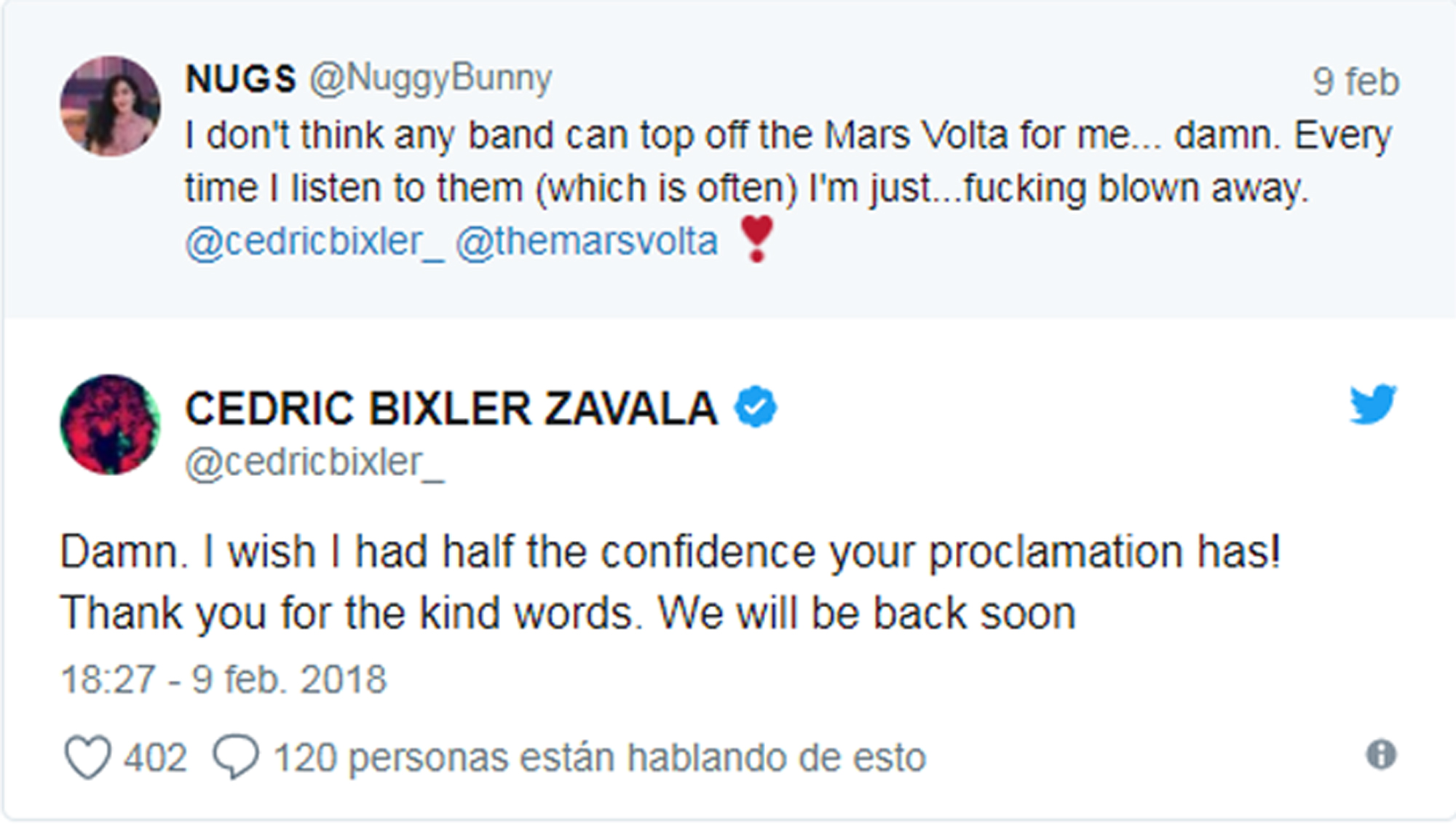
Gone are the days of nine-minute epics - none of these songs even come close to the five-minute mark, and only two of them barely squeak past four minutes. Their self-titled “clean slate” (in the words of the band, explaining the self-titled approach) return of a band who, in their decade away from making music, have changed… a lot.

What’s funny is that, if ever a record felt primed to polarize a fanbase, it’s their most accessible.

Ominous though it may seem for a positive review of an album, The Mars Volta brings to mind the words of Jud Crandall in Pet Sematary: “The person you put up there ain’t the person that comes back - it may look like that person, but it ain’t that person.” This album is different in a way that Mars Volta albums are never different - largely in the fact that it sounds like something a normal person might listen to and enjoy. Is there still room for them in our current landscape? If the ludicrous success of the vinyl reissue campaign for the band’s back catalog (many of which had become holy grails for record collectors even while they were still in their first era, much to the dismay of fans who just wanted to rinse Frances the Mute for less than $300) showed us anything, it’s that people need the bizarro escapism of The Mars Volta to simply cope with the exhausting and painful pressures of modern life. When The Mars Volta decided to show signs of lumbering back to life in 2019, the question from fans arose: Do we need this? This isn’t to deny any artist the freedom to explore their art under whatever banner they choose, but rather to wonder if the abstract weirdness of Mars Volta would still pack the same punch in 2022 as it did in 2012. Then again, any Mars Volta fan who might feel like they went a little off the deep end by the time 2009’s Octahedron and 2012’s Noctourniquet came around might want to ask themselves: what is an “ exoskeletal junction at the railroad”? Is it about accepting that Cedric Bixler-Zavala (frontperson, singer/songwriter) and Omar Rodríguez-López (guitarist, producer, arguably the one with better hair) are inevitably going to go in whatever bonkers-ass direction feels right for them? Is it about an acceptance of sprawling, multi-part prog-metal epics infused with Latin rhythms and psychedelic moods? Is it about knowing that you’re never going to understand what the hell they’re singing about? Your mileage may vary, especially depending on when you showed up to the party the long-time fans, and those who hopped on knowing Mars Volta as “Cedric and Omar from At the Drive-In’s new band,” the madcap directions the band went in on later releases can feel alienating.

What does it mean to love The Mars Volta? Depending on what you come to the band for, that answer can vary.


 0 kommentar(er)
0 kommentar(er)
